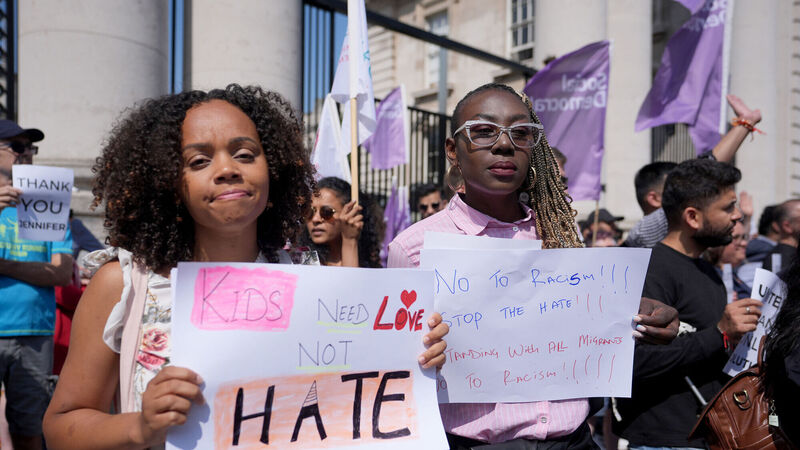The old saying about sticks and stones is wrong — just ask our migrant friends

People take part in a silent assembly for migrant workers and their families outside the Department of the Taoiseach in Dublin, on Wednesday following the recent attacks on members of the Indian community. Picture: Niall Carson/PA
We have long known that the old saying about sticks and stones is wrong. An updated (but far less catchy) version, might read: “Sticks and stones can break my bones, but names can deny my humanity.”
Words can hurt and they can lay the groundwork for the actions that follow. A six-year-old girl assaulted and told to go back to India, an eight-year-old boy called the n-word on a football pitch by another little boy, a young woman in a hijab spat at on the streets, a man attacked on his way home from work.













